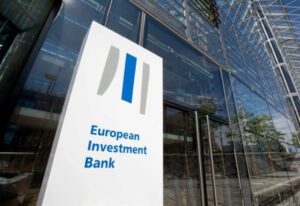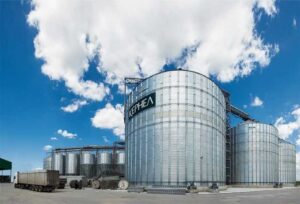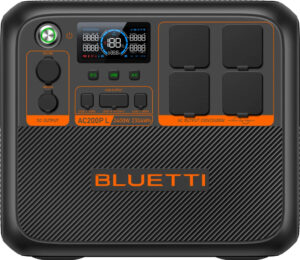
The European Business Association (EBA), the American Chamber of Commerce in Ukraine (AmCham) and the Association of Tobacco Manufacturers “Ukrtobacco” have appealed to the Verkhovna Rada to support in the second reading the draft law No. 11090 on increasing the excise tax on tobacco products as proposed by the Cabinet of Ministers.
“It is necessary to provide for the EU’s approach to determining a single euro to hryvnia exchange rate throughout the year (as of October 1 of the previous year for the entire next year) in order to ensure business planning for enterprises that are the largest taxpayers in Ukraine, which, according to the official opinion to the draft law and relevant letters, is insisted on by both the Rada Committee on Ukraine’s Integration into the EU and the Government Office for Coordination of European and Euro-Atlantic Integration of the Cabinet of Ministers,” the second version of the draft law reads on the EBA website.
The associations are confident that the initiatives of some Ukrainian MPs to introduce conceptual changes to the decision already adopted in the first reading to change the excise tax rates on tobacco products pose significant risks to the State Budget of Ukraine. These proposals could provoke a galloping growth of the illegal cigarette market, which has been reduced with extraordinary efforts for several months, taking into account the recommendations of the G7 countries and the leadership of the Chairman of the Parliamentary Financial Committee Danylo Hetmantsev.
The most critical and risky initiatives, according to the member companies, are the proposals to establish an ad valorem excise tax on tobacco products at 25% and to compare the tax rate for cigarettes and electrically heated tobacco products (EHT).
It is emphasized that such an initiative does not comply with the European approach and the practice of EU member states.
“Please take into account the position of the united business community when making the final decision on the revision of excise tax rates on tobacco products as part of the further consideration and adoption of Draft Law 11090,” the association summarized.
Earlier, the Union of Ukrainian Entrepreneurs (UUE) and the U.S.-Ukraine Business Council (USUBC) called for the adoption of the draft law on tobacco excise taxes in the version of the Cabinet of Ministers.
As reported, on June 4, the Verkhovna Rada supported in the first reading and adopted as a basis the draft law No. 11090 on increasing the excise tax on tobacco products.
The draft law provides for the conversion of excise tax rates on tobacco products from hryvnia to euros, reaching the EU minimum excise tax level on cigarettes (EUR90 per 1000 cigarettes) through a gradual increase in specific excise tax rates by 2028, returning to the differentiation of excise tax on HTPs and cigarettes, and introducing a special mechanism for calculating excise tax on tobacco products based on the exchange rate.
According to the estimates of the Ministry of Finance described in the draft Budget Declaration, this will increase state budget revenues by UAH 0.6 billion in 2025, by UAH 5 billion in 2026, by UAH 9.4 billion in 2027 and by UAH 13.9 billion in 2028.

The Cabinet of Ministers of Ukraine has set Tuesday, September 2, as the start of the new 2024/2025 school year in general secondary schools, Prime Minister Denys Shmyhal said.
“Today, by a separate resolution, we are determining the start of the new school year in general secondary schools on Monday, September 2. And its completion on June 30, 2025,” Shmyhal said at a government meeting on Tuesday.
In this regard, regional administrations have been instructed to ensure the organization of the process depending on the security situation in a particular territory.
At the same time, the Ministry of Education and Science of Ukraine reminded that within the limits of the school year approved by the government, the pedagogical council of the educational institution determines the structure and duration of the school year, school week, school day, classes, rest between them, and forms of organization of the educational process. “In determining this, it takes into account the time provided for by the educational program, the amount of academic workload in the curriculum and age-related features, physical, mental and intellectual development of children, and the peculiarities of the region,” the statement says.
It is noted that the duration of vacations in educational institutions cannot be less than 30 calendar days.
“Therefore, an educational institution can independently determine the structure of the school year and the forms of organization of the educational process. In particular, taking into account the extent to which studying in wartime affected the mental state and intellectual development of students, whether they have educational losses, what is the security and energy situation,” the ministry said.

In June this year, Ukrainian steelmakers increased steel production to 735 thousand tons, up 68.4% year-on-year (436 thousand tons), but down 0.4% from the previous month, when they produced 738 thousand tons.
At the same time, Ukraine took 20th place in the ranking of 71 countries that are global producers of this product, compiled by the World Steel Association (Worldsteel).
The top ten steel-producing countries in June are as follows: China (91.610 million tons, up 0.2% by June 2023), India (12.258 million tons, up 6%), Japan (7.022 million tons, down 4.2%), USA (6.659 million tons, minus 1.5%), Russian Federation (6.030 million tons, down 4.1%), South Korea (5.132 million tons, down 7.2%), Germany (3.187 million tons, up 8.9%), Turkey (3.071 million tons, up 4.3%), Brazil (2.874 million tons, up 11.8%) and Iran (2.612 million tons, down 8.5%).
In total, in June 2024, steel production increased by 0.5% compared to the same period in 2023 to 161.399 million tons.
In January-June 2014, the top ten steel producing countries were as follows: China (530.570 million tons, down 1.1% compared to January-June 2023), India (74.184 million tons, up 7.4%), Japan (42.696 million tons, down 2.6%), the United States (39.960 million tons, down 2.4%), and the Russian Federation (36.815 million tons, down 3%), South Korea (31.526 million tons, down 6.4%), Germany (19.360 million tons, up 4.5%), Turkey (18.615 million tons, up 16.9%), Iran (16.647 million tons, up 5.9%) and Brazil (16.433 million tons, up 2.4%).

The European Investment Bank (EIB) Group is planning new loans totaling EUR450 million for Ukrainian energy investments, including the reconstruction of hydroelectric power plants and power grid infrastructure damaged by Russian attacks, as well as the restoration of district heating networks in Ukrainian cities.
According to a press release on the bank’s website, another EUR 86 million will go to Ukraine’s national power grid operator, NPC Ukrenergo, to build drone shelters for power plants.
“We are stepping up our support to help protect and repair Ukraine’s infrastructure before winter,” the release quotes EIB President Nadezhda Calvigno as saying, “On July 22, she briefed EU foreign ministers on these measures and held a regular video conference with Ukrainian Finance Minister Sergii Marchenko to discuss progress on ongoing projects, especially in energy infrastructure.
According to her, the bank will also expand its support for Ukraine’s economy by facilitating access to finance for businesses and promoting trade with the EU.
In the business finance component of the latest support package, the EIB Group approved three partial portfolio guarantees, which are expected to lead to more than EUR 110 million in new lending to Ukrainian micro, small and medium-sized enterprises through three Ukrainian banks. It is specified that the guarantees are to be signed in the second half of 2024 with the respective banks and will support 550 Ukrainian companies, preserving about 8,250 jobs.
In addition, the EIB Group intends to provide partial portfolio guarantees to five more banks in Ukraine by the end of the year under the EU4Business Guarantee Facility, the release said.
According to the release, this week the EIB is also joining forces with Ukrsibbank, the Ukrainian subsidiary of BNP Paribas Group and one of Ukraine’s largest banks, to launch a revolving credit line of at least EUR150 million in Ukrainian hryvnia to support businesses affected by the war. The local currency facility is expected to be operational by the end of 2024. This is the EIB’s second initiative to stimulate local currency lending in Ukraine, following a partnership with Citibank Ukraine for between $50 million and $100 million in Ukrainian hryvnia.
In addition, the release notes, by the end of this month and following the signing of an agreement with the European Commission in June, the European Investment Fund (EIF) will start accepting applications under a EUR300 million export credit guarantee facility to support EU companies trading with Ukraine. The initiative will offer guarantees to export credit agencies in EU member states, as well as Norway and Iceland, that want to help export to Ukraine.
Following a videoconference on July 22, the Ministry of Finance of Ukraine announced that it expects the EIB to approve a EUR250 million package of support for Ukraine’s energy sector in the near future.
In general, according to the Ukrainian side, the volume of EIB initiatives in the public sector is 26 projects worth EUR 5.3 billion, and the volume of the portfolio of joint projects in the public and private sectors is the largest for all years of cooperation and exceeds EUR 7 billion, including about EUR 2 billion of EIB investments in all areas since the beginning of the full-scale war.
Regarding current initiatives, the parties also discussed preparations for the signing of a financial agreement between Ukraine and the EIB on the project “Implementation of the Emergency Assistance System for the Population by a Single Number 112”, as well as potential joint projects, in particular, aimed at providing housing for Ukrainian citizens.
As reported, in 2024, Ukraine and the EIB signed a Memorandum of Understanding on cooperation in the public and private sectors of Ukraine’s economy. The Memorandum identifies priority areas of cooperation for the next 10 years.

Kernel Agro Holding, one of the largest agricultural companies in Ukraine, processed 951 thousand tons of oilseeds, including 17 thousand tons of rapeseed, in the fourth quarter of fiscal year (FY) 2024, bringing the total processing volume to 3.2 million tons in FY 2024.
“This represents an increase of 27% year-on-year, primarily due to new crushing capacity added in February 2024 and the commissioning of a new oil extraction plant in Western Ukraine,” the company explained in a report to the Warsaw Stock Exchange on Monday.
According to the report, sales of sunflower oil in April-June 2024 increased by 1% quarter-on-quarter to 384 thousand tons, including 20 thousand tons of bottled sunflower oil.
The volume of silo acceptance in the fourth quarter of FY2024 was seasonally low and amounted to 53 thsd tonnes, bringing the total production in FY2024 to 2.8 mln tonnes, which is the same as in the same period last year, the agroholding said.
At the same time, the volume of grain exports from Ukraine in the last quarter of the financial year amounted to 1.61 mln tonnes, 46% of which were to foreign buyers. This is 14% less than in the previous quarter, but 2.6 times more than in the same period last year.
“For the whole of fiscal year 2024, Kernel exported 5.5 million tons of grain, up 47% year-on-year. Grain received from external suppliers accounted for 2.6 million tons of the total export volume. The agricultural holding attributed this growth to well-functioning export routes through the Black Sea for most of the year.
In April-June 2024, the transshipment volume of the group’s export terminals decreased by 8% compared to the previous quarter and amounted to 2.3 mln tons, indicating a slowdown in grain exports.
For the whole of FY2024, Kernel transshipped 6.7 mln tons of grain, sunflower oil and meal through its terminals, up 51% year-on-year. This growth was driven by the resumption of export routes through deep-water ports starting in the second quarter of FY2024. Grain accounted for 75% of the total transshipment volume in FY2024, edible oil for 12%, and meal produced from residues.
To improve terminal capacity utilization, the Group provided transshipment services to third parties in FY2024, totaling 486 thousand tons.
“Critically high temperatures and prolonged lack of precipitation in all regions of the group’s presence negatively affected the yield potential of spring crops in the fields, especially soybeans and, to a lesser extent, corn,” the agricultural holding summarized.
Before the war, Kernel Agro Holding was the world’s leading producer of sunflower oil (about 7% of global production) and its exports (about 12%). It is one of the largest producers and sellers of bottled oil in Ukraine. In addition, it is engaged in the cultivation and sale of agricultural products.
Kernel’s net profit for FY2023 amounted to $299 million, while the company ended the previous year with a net loss of $41 million. The agricultural holding’s revenue for FY2023 decreased by 35% to $3.455 billion, but EBITDA increased 2.5 times to $544 million.
In the first half of FY2024, Kernel’s net profit fell 3.6 times compared to the first half of FY2023, to $102 million, and EBITDA halved to $223 million, with revenue down 16% to $1.59 billion.

Foxtrot, an omnichannel electronics and home appliances retailer, has become the official distributor of Bluetti, a manufacturer of portable solar power plants and related products, Foxtrot’s press service reports.
“We always offer our customers the most modern and reliable solutions to ensure the comfort and safety of their homes. This is also the case with Bluetti appliances, which already have fans among our customers due to the high quality and innovative technologies used in production. This equipment is the perfect choice for customers looking for a backup power source in these difficult times,” said Vyacheslav Sklonny, Foxtrot’s commercial director.
Bluetti, an American manufacturer of portable charging stations and mobile solar systems, has been present on the global market since 2019 and became best known in Ukraine in October 2022. “Foxtrot started its own imports of Bluetti brand in October 2023.
The company said that it is also looking forward to innovative balcony solutions from Bluetti, which will be able to provide electricity during power outages not only to a private house but also to an apartment, making it as autonomous as possible. The terms of cooperation stipulate that most of the new models will first be presented in the Foxtrot network and then go to the general market.
“Foxtrot is one of the largest omnichannel retail chains in Ukraine in terms of the number of stores and sales of electronics and home appliances. The company operates 124 stores in 67 cities, including the frontline cities of Kherson, Kramatorsk, Sloviansk and Pokrovsk, and an online platform Foxtrot.ua and a mobile application of the same name. The number of customers reaches 14.2 million.
The Foxtrot brand is developed by the Foxtrot Group of Companies. The co-founders are Valery Makovetsky and Gennady Vykhodtsev.